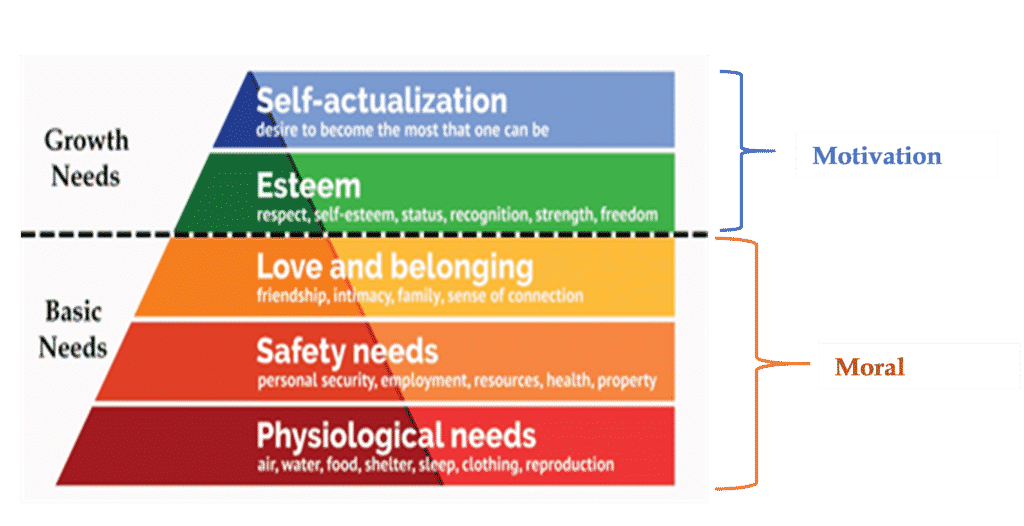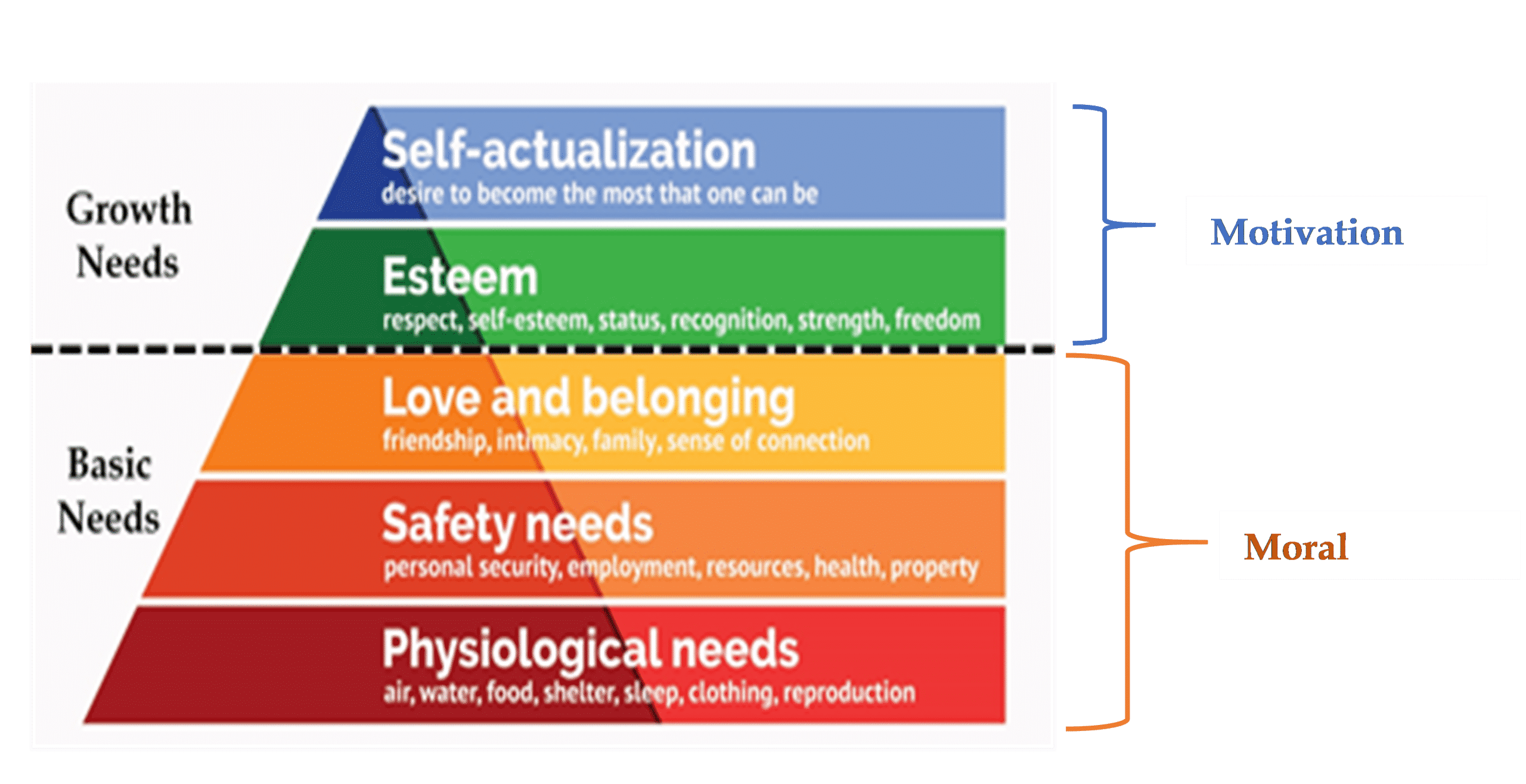The management has decided to give Peter a raise of 20% in his current salary. Peter is extremely pleased. But will the raise keep him happy for the next 3 years? Will this happiness be short lived or stay for long? Will this act of management improve his moral or motivation? Before we search for an answer, let us upgrade our understanding on these two key words Moral and Motivation.
Let us go back to Maslow’s hierarchy of needs, an important tool to understand the diverse aspects of human behavior.

Maslow’s Hierarchy of Needs
In this Needs triangle, the bottom three needs are Basic needs which stabilizes our life and lifts our moral. Moral can be defined as a “Feel-good” state of mind. A good moral also creates the foundation of defining a purpose to life.
Motivation on the other hand is an inner drive, an inspiration that excites our mind to move forward, to grow in life. It defines a purpose of living. Motivation of a person comes from satisfying two higher level needs, also called Growth needs as described in Maslow’s triangle.
This brings our attention to the two aspects that make a person perform well: moral and motivation. Have we ever thought what we work for? Is it barely something that we need for living or is it something more?
Moral is set by resources and the environment we live in, whereas motivation is the result of desire and ambition. Our moral is high if our basic needs are met, but motivation works on a different psychology.
Moral is set by resources and the environment we live in, whereas motivation is the result of desire and ambition. Our moral is high if our basic needs are met, but motivation works on a different psychology.
So, what is the driving force? Is it the purpose or the paycheck? Let us take a closer look.
There are two types of motivation: extrinsic and intrinsic.
Extrinsic motivation is the stimulation of behavior by various external factors such as praise, a raise, a promotion, or other benefits. It boosts our current mood and improves our lifestyle. This extrinsic motivation is synonymous to moral.
On the other hand, intrinsic motivation is a behavioral catalyst, driven by a desire for personal satisfaction or fulfillment and is therefore related to the growth needs, that literally keeps us motivated. This is intrinsic motivation – a real motivation.
We cannot debate which is better, but both extrinsic and intrinsic motivation can be effective in influencing people’s behavior and prompting them to act in certain ways. It is also worth noting that the effectiveness of a particular type of motivation can vary from person to person. Either way, we must remember that we only grow when we are motivated.
Comparing longevity of both, extrinsic motivation or moral is short-lived. An award we receive in a year doesn’t keep us motivated for the next few years, or a performance bonus one year doesn’t motivate us for the next ten years. It only makes us happy on a superficial level, or in short, it only keeps our moral up. Intrinsic motivation, on the other hand, is a stronger catalyst for achieving accelerated and long-term goals.
In his introduction to the book ‘Working’, Studs Terkel wrote, “It (referring to Work) is about a search, too, for daily meaning as well as daily bread, for recognition as well as cash, for astonishment rather than torpor; in short, for a sort of life rather than a Monday through Friday sort of dying. Perhaps immortality, too, is part of the quest.”
Terkel noted a common characteristic of those he called “the happy few” who find a pleasure in their daily work, saying that they “have a meaning to their work over and beyond the reward of the paycheck.”
We take note of Terkel’s comment.






1 thought on “Moral Vs Motivation”
Well written
Comments are closed.